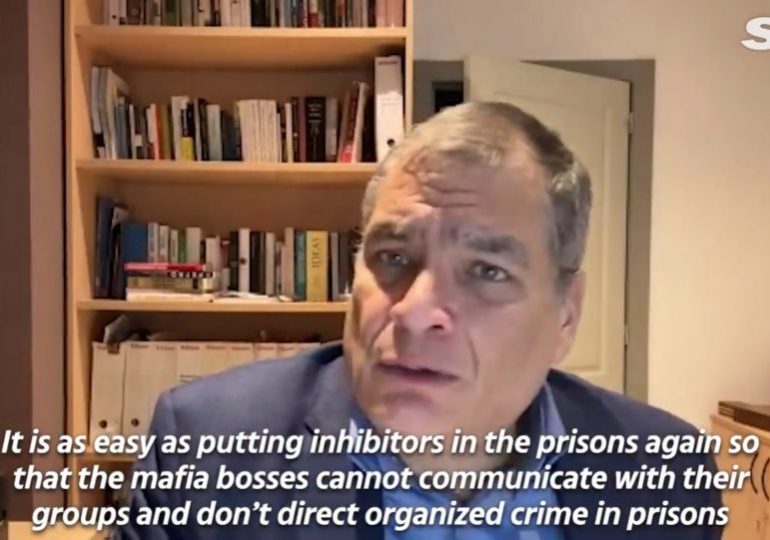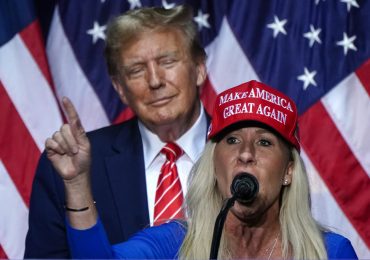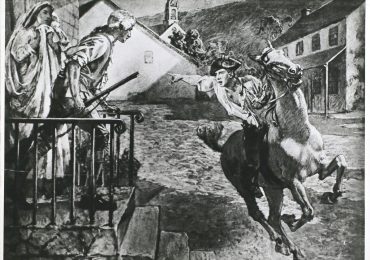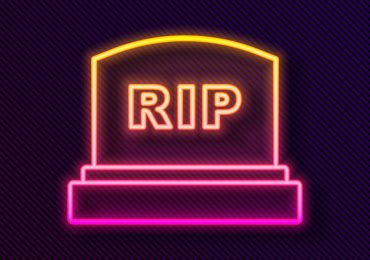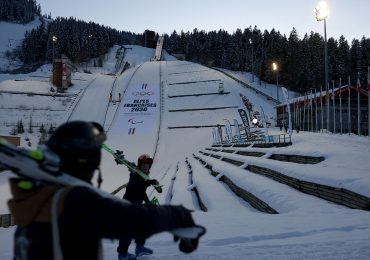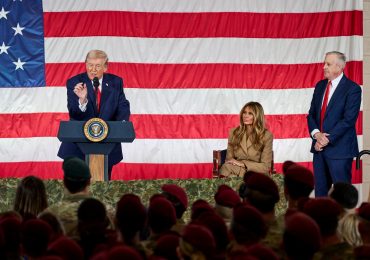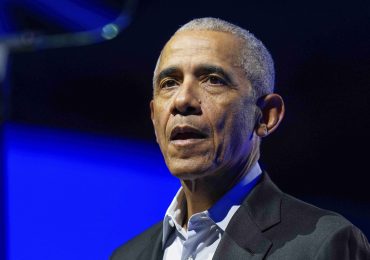EX-PRESIDENT of Ecuador has said he “weeps” for the country as it’s plunged into chaos and rampant violence spreads onto the streets of several cities.
This comes after the current leader declared a “state of war” on drug-trafficking cartels and imposed a state of emergency in response to the series of violent events.
The SunEx-president of Ecuador ‘weeps’ for the country as violence spills onto the streets in recent days[/caption]
AFPMembers of the Armed Forces frisk men during an operation to protect civil security in Quito, on January 10, 2024[/caption]
APMasked gang members stormed a TV station armed with guns and bombs during live broadcast[/caption]
ReutersSoldiers patrol the city’s historic centre a day after Ecuador’s President Daniel Noboa declared a 60-day state of emergency[/caption]
Rafael Vicente Correa Delgado, 60, served as the president of Ecuador from 2007 and 2017.
The ex-president said he has to hold back his tears as he watches his beloved country descend into deadly anarchy.
Mr Correa said: “I have not seen such rapid, deep, serious destruction of a country in times of peace, without sanctions, without a blockade.”
According to the ex-leader of Ecuador, the international figures show that there were 5.8 homicides per thousand inhabitants during his presidency.
This number rose to 42 homicides per thousand inhabitants in 2023.
“That means that we went from being the second safest country in Latin America – only Chile beat us, which has twice the per capita income of Ecuador – to being one of the five most violent countries in the world… of total destruction,” the former president added.
Ecuador is currently in a 60-day state of emergency which was announced on January 8 as the nation is coming off its bloodiest year on record.
The country’s 17 million population find themselves under a curfew enforced by armed soldiers.
The citizens are restricted from moving freely and assembling, while police is allowed to enter homes without a court order.
Such drastic measures come as a response to the rampant violence in the country’s notorious prisons.
On January 7, an infamous Adolfo Macias, also known as Fito, vanished from the prison while serving his 34-year-long sentence.
The druglord – who leads the notorious cartel Los Choneros – escaped from jail on the day of his scheduled transfer to a maximum-security prison.
Following his escape, almost every armed group in Ecuador issued chilling threats of war across the country.
On Tuesday, hooded gunmen stormed a TV studio during a live broadcast, waving guns and bombs while threatening terrified staff.
They were reportedly heard saying: “We are on the air so that they know we do not play with the mafia.”
When Mr Correa was shown the terrifying footage during his live interview with a Belgian television, he said he “couldn’t believe it”.
“I almost cried in front of the cameras because it’s a nightmare.
“They take over television channels, declare war on the state. There are terrorist attacks.
“That has never, never happened, and you ask me what I feel, and the truth is that today I feel like crying,” he added.
The crazed criminals took 150 prison guards hostage in at least six jails.
The chaos had spilled onto the streets as seven police officers were kidnapped around the country and five explosions tore through Ecuador’s cities, reported Sky News.
Mr Correa believes the string of horrifying events was a long-time coming.
“What is happening [since Tuesday] is the most serious, but it is not the only thing that has happened.
“There have already been very serious outbreaks of violence. This is the continuation, I think it is a sequence of things.
“It’s not that it happened overnight and no one expected it.
“On the contrary, sooner or later something like this was going to happen because it was notorious that these groups were tremendously organised and were in impunity and there was no state response, for example, to control the prisons,” the ex-president explained.
The drug gangs started to gain more power in 2017, according to Mr Correa.
But it was an alliance with Mexican cartels – which were looking towards the South America after losing a fentanyl market in the North – that financed the Ecuadorian drug lords to heavily arm themselves.
“What is the cause of that? Hatred, political persecution, corruption, ideological fundamentalism – they did not believe in the state and they destroyed it,” he added.
The former leader of the South American nation claims that the state is “infiltrated” and the “unprecedented” violence is a result of that.
The crimes are orchestrated from within the prison walls as the government lost control of them, Mr Correa stated.
“It [cartels] has infiltrated the armed forces, the national police, the justice system and the prison system, and the noose government itself,” he added.
To stop this problem, the former president proposed tightening security measures at ports – where drug cartels export their goods under disguise of the ghost companies.
According to Mr Correa, the drugs are smuggled through the Putumay- a river in the Amazon forest of Colombia – and reach Europe in containers with bananas.
The ex-president blamed the lack of security checks at ports for the drug trafficking spreading like wildfire.
He said: “Why don’t they put in more scanners? Why don’t they reduce the ports from which banana containers can be exported?
“Because they do not reduce the export permits of the ghost companies that we know are from the drug exporting mafias.
“So, why don’t they cut off the source of financing by looking at bank movements?
“For that, intelligence and technology are needed, but they are not using it.”
The once peaceful Ecuador saw violence explode in recent years as rival Mexican and Colombian cartels battle for control.
President Noboa – who secured his victory last year with a pledge to fight drug-related crimes – has ordered the military operations against the mobsters.
In retaliation, the criminal syndicates have unleashed 30 attacks just this week which left eight people dead and three wounded in Guayaquil.
Two more officers were brutally murdered by armed gangsters in the nearby town of Nobol, police reported.
Mr Correa worries for the future of his country, saying that the problem will persist unless decisive actions are taken.
“I fear that the problem will last, but it can be solved decisively, otherwise we will never solve it.
“So, most likely with the armed forces in the streets, with lethal power to combat these groups, these groups will be controlled somewhat.
“But they will continue with drug trafficking, they will continue to infiltrate the courts of justice, the governments themselves.
“So there must be much deeper solutions, not only stopping open violence now, but for example, ending drug trafficking.
“It is very difficult to put it at zero, but not to be the main exporter of cocaine to Europe as we currently are.”
Mr Correa said the country’s ongoing issue of organised crime cannot be tackled in the short-term.
“They can contain the violence in the short term, but to end it or return to a reasonable limit because I don’t think any country in the world has achieved it again.
“But when it comes to organised crime, there are much deeper and much more long-term actions,” he said.
ReutersMembers of the armed forces of Ecuador check the tattoos of a man on the street for potential gang affiliation during a security operation[/caption]
EPAAn Ecuadorian soldier participates in a control operation inside a public service bus at La Marin central public station in Quito[/caption]
Leave a comment
